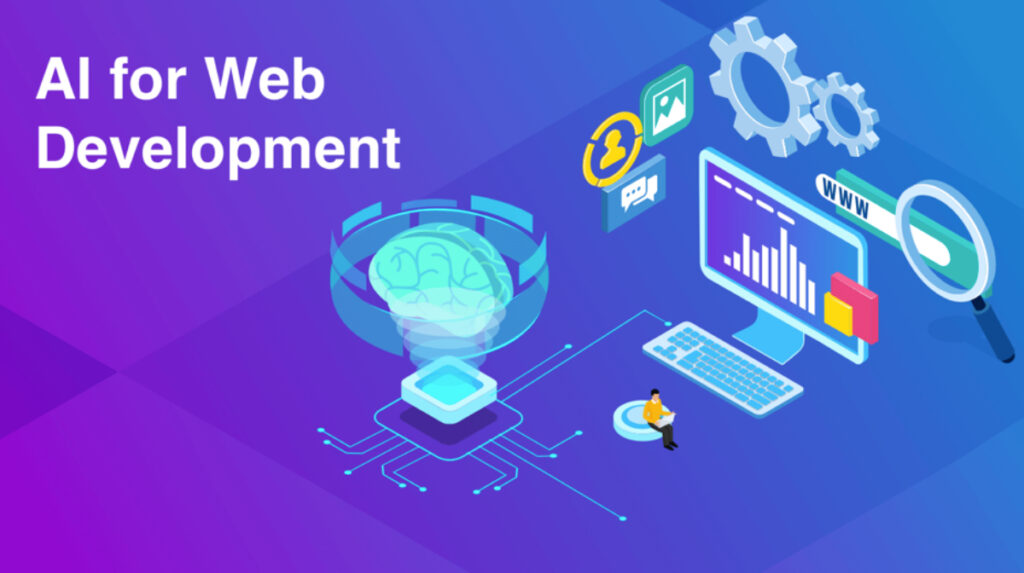
In the ever-evolving landscape of website development and web solutions, Artificial Intelligence (AI) has emerged as a powerful tool transforming how we design and interact with websites. One of its most significant contributions is the creation of personalized user experiences. In this article, we’ll explore the impact of AI on web design and how it is reshaping the digital world to provide users with tailored, engaging, and intuitive online experiences.
Understanding AI in Web Design
AI is the integration of intelligent algorithms and data-driven decision-making in website development. It enables websites to adapt and respond to user preferences, making each visit a unique and customized experience. The goal is to move away from static, one-size-fits-all web designs to dynamic and user-centric interfaces.
Website Development with AI
AI-driven web design begins with the collection of user data. This data can include user behavior, preferences, demographics, and more. By analyzing this data, AI can help designers make informed decisions to create a more engaging and personalized user experience.
Content Personalization: AI can analyze user behavior, such as which pages they visit most frequently, what products they view, or what articles they read. This information is used to recommend personalized content, be it product suggestions, articles, or tailored advertising.
Dynamic Website Layouts: AI can adjust the layout of a website in real time based on user preferences. For instance, it might rearrange the homepage to prominently display products or content that a user has shown interest in.
Adaptive Typography and Color Schemes: AI can analyze user preferences for fonts, text sizes, and color schemes, creating a visually appealing and comfortable reading experience.
Chatbots and Virtual Assistants: AI-driven chatbots and virtual assistants respond instantly to user inquiries, enhancing user engagement and satisfaction.
Web Solutions Enhanced by AI
The integration of AI in web design doesn’t just benefit the user; it also streamlines and enhances the web development process. Here are some of the web solutions that AI provides:
Efficient A/B Testing: AI can automate the process of A/B testing, rapidly assessing design changes to determine what resonates most with users.
Content Generation: AI-driven content generation tools can assist in producing articles, product descriptions, or other textual content, saving time for content creators.
User Behavior Analysis: AI can provide deep insights into user behavior, helping web developers understand how visitors interact with the site and make data-driven decisions.
Security: AI can enhance website security by identifying and mitigating potential threats in real time, protecting both the website and user data.
The Benefits of Personalized User Experiences
The integration of AI into web design offers numerous advantages:
Increased Engagement: Personalized content and dynamic layouts capture user attention, keeping them engaged and encouraging longer visits.
Higher Conversions: Tailored product recommendations and content increase the likelihood of conversions, whether making a purchase, signing up for a newsletter, or sharing content.
Improved User Satisfaction: Users appreciate websites that understand and cater to their needs, leading to higher satisfaction and loyalty.
Data-Driven Decisions: AI provides valuable insights into user behavior, enabling data-driven decisions for web development and marketing strategies.
Competitive Edge: Websites that embrace AI for personalization gain a competitive edge by delivering a superior user experience.
Challenges and Considerations
While AI-driven web design offers immense potential, there are challenges to consider. Privacy concerns and data protection are crucial, as extensive data collection is often required for effective personalization. Website owners must be transparent about data usage and ensure compliance with data protection regulations.
Moreover, it’s essential to strike a balance between personalization and user privacy. AI should respect users’ boundaries and not intrude on their online experiences.
Conclusion
The integration of AI in web design is reshaping the digital landscape, creating personalized user experiences that were once thought to be the stuff of science fiction. AI-driven web solutions are streamlining the web development process and empowering designers to deliver tailored, engaging, and intuitive online experiences.
As the web becomes increasingly saturated with content, websites that embrace AI for personalization gain a significant advantage. Users expect more than just static, generic web experiences; they want websites that understand their preferences and cater to their needs. In this era of AI-powered web design, personalized user experiences are no longer a luxury but a necessity. They lead to higher user engagement, increased conversions, and improved overall satisfaction, making AI an indispensable tool in the world of website development and web solutions. Embrace the future of web design, embrace AI, and provide your users with the unique, personalized experiences they deserve.
Pingback: Front-End vs Back-End Development: Understanding the Differences